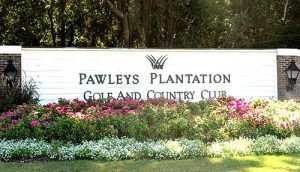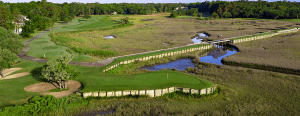Interested in buying golf-course real estate?
Interested in buying golf-course real estate?
Hi, I’m Mel Sole, Director of Instruction at the Mel Sole Golf School, headquartered at Pawleys Plantation Golf and Country Club in Pawleys Island, SC. We conduct 1, 2, and 3-day golf schools, hourly golf lessons, and senior golf schools—any golf instruction program your heart desires. Give us a call at 800-624-4653 or 843-237-4993. We will be happy to book a commuter school or a package that contains accommodations, golf, and golf school.
Golf Blog by the Mel Sole Golf School.
Owning golf-course real estate is desirable for many people. It may serve as your second home (for vacations) or could be your retirement residence.
Factors to consider before buying include location, the stability and longevity of the developer, and the notoriety of the golf course designer. Get the inside track on all of these points in the following article by S. Adam Cardais for golfcourserealty.com.
I would add Homeowners Association to the checklist. You'll want to know about any restrictions regarding property enhancements, etc. Also, fees, so there are no unwanted surprises later. The folks at golfcourserealty.com certainly know golf course real estate, so why don't we listen to (or read) what they have to say on the subject.
Let's say you're the happy owner of a golf-course home. You lived there for years, watching your investment appreciate.
Then one day, the owner of the golf course goes belly up or decides to sell out. Suddenly your beautiful home on the fairway is a beautiful home on a long stretch of browning grass.
What can you do? In many cases, very little - besides watching your property value plummet.
Owning golf-course real estate has its benefits - golf properties are three times as valuable as the average U.S. home, according to the Golf Research Group, which tracks the industry. But it also has pitfalls.
There are several factors to consider before buying, some obvious, some not. Understanding them will help you invest intelligently.
Location, location, location
Interested in buying golf-course real estate remember this saying. It might be the oldest saying in real estate, but that doesn't make it any less true. In golf realty, the location question requires a twofold answer.
The first concerns general location. Say you're looking at an area rife with golf communities. You might get more bang for your buck in that new community 30 minutes from the city center, but your home probably won't appreciate as quickly as one in a more established club near downtown, according to Steve Slayden of brokerage Dickens Mitchener & Associates, an avid golfer who has been selling property in the Charlotte, N.C. area for 15 years.
Then there's location within the community. Buying a home slightly off the course insulates you from the nuisances of golfer chatter, noisy carts and balls plopping in your yard.
"You don't want to live 190 yards on the right because hackers tend to hit big slices, and you'll have a lot of balls on your lawn," Slayden said.
But getting some distance from the negatives of golf-course living isn't cheap. Owning a home away from the course can cost twice as much as one on the track.
Know your developer
The Myrtle Beach area has experienced a raft of course closings due to rapidly increasing real-estate values and falling profits in the golf industry, TravelGolf.com National Golf Editor Tim McDonald recently reported, leaving homeowners high and dry or seeking legal redress.
So it's important to look at who you're buying from. Keep an eye out for financially stability and signs of long-term commitment. Slayden cites Charlotte's successful Piper Glen, which boasts a Tournament Players Club track.
"You know when they built that golf course, they're not going belly up," he said.
McDonald also advises buyers to closely read their prospective community's covenants to ensure they "will be looking out their windows at a golf course and not a condo development."
Better living by design
Don't underestimate the importance of the course designer. Whatever their skills as architects - and all have designed acclaimed tracks - famous names like Jack Nicklaus, Greg Norman and Davis Love III add luster to a golf-course community.
Golf Research Group developed the net present value (NPV) index to calculate the importance of big-name designers. Courses created by one of 40 or so top architects have an NPV of $28.9 million, compared to $17.5 million for second-tier designers' tracks, Brandon Tucker wrote in a recent story for GolfCourseRealty.
Buying a home in a community with a brand-name course usually translates into better appreciation and higher property values. The Club at Longview in Charlotte has a Nicklaus Signature course. Its initiation fee, a good barometer for judging property values, is $100,000; Piper Glen's is around $30,000.
"It goes to show you that people will pay a lot more for a signature Nicklaus course," Slayden said. "If they hadn't gotten Nicklaus, they wouldn't have been able to ask for that much."
October 11, 2006
Any opinions expressed above are those of the writer and do not necessarily represent the views of the management. The information in this story was accurate at the time of publication. All contact information, directions and prices should be confirmed directly with the golf course or resort before making reservations and/or travel plans.
Source: golfcourserealty.com Mel Sole Golf School.
Pictures: assdumb92 Naples area Anthony
Thanks for reading - Interested in buying golf-course real estate? Maybe you will buy the home you've always wanted!
Related Posts.
Tour Players give back to their communities!
An interesting golf rules question – Rules & Etiquette Wednesday #99.
A great drill to improve your putting technique – Technical Thursday #85.
PLEASE SUBSCRIBE TO MY CHANNEL, LIKE THIS VIDEO, SHARE IT WITH A FRIEND, LEAVE A COMMENT!


